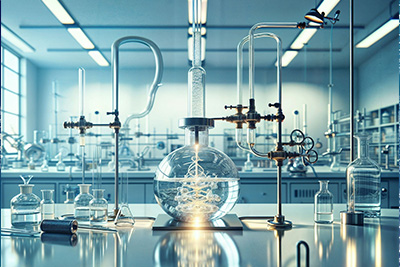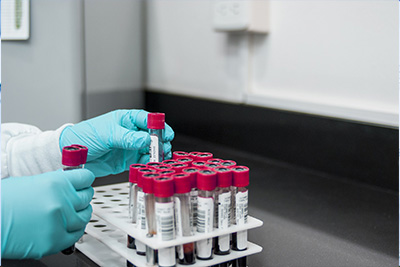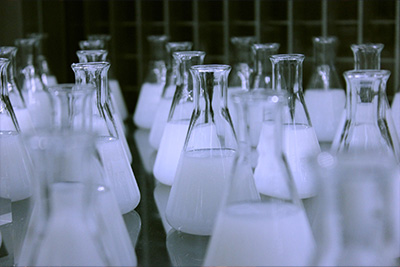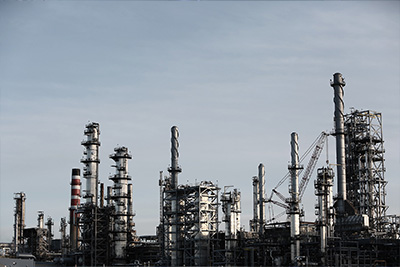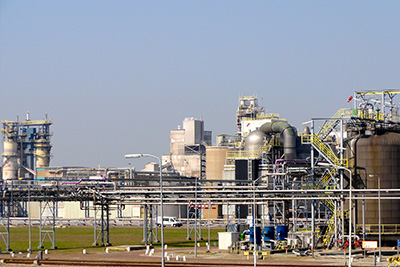-
![Dimethyltin Compou···]() 2024-11-30 Dimethyltin Compound Production: Tec···
2024-11-30 Dimethyltin Compound Production: Tec···The production of dimethyltin compounds faces significant technical challenges, including complex synthesis processes and the need for precise control over reaction conditions. These factors contribute to high production costs and limit their widespread application. Future research should focus on developing more efficient synthetic methods and improving process control technologies to reduce costs and enhance product quality. Additionally, exploring new applications in fields such as materials science and medicine could broaden the utility of dimethyltin compounds. Addressing these challenges is crucial for advancing the practical use and industrial scalability of dimethyltin compounds.
read more > -
![Mercaptide Tin’s I···]() 2024-11-30 Mercaptide Tin’s Influence on PVC He···
2024-11-30 Mercaptide Tin’s Influence on PVC He···The article explores the impact of mercaptide tin on the heat stability of polyvinyl chloride (PVC). It highlights recent advancements in the production techniques and applications of mercaptide tin, emphasizing its crucial role in enhancing PVC's thermal resistance. The improved stability allows for broader processing parameters and extended service life, making it particularly valuable in industries such as construction and automotive manufacturing. This development contributes to more efficient and durable PVC products.
read more > -
![Butyltin Compounds···]() 2024-11-30 Butyltin Compounds in Industrial PVC···
2024-11-30 Butyltin Compounds in Industrial PVC···Butyltin compounds, widely used in the industrial production of polyvinyl chloride (PVC), have garnered attention due to their market trends and technical applications. These compounds serve as effective stabilizers, enhancing the durability and longevity of PVC products. Recent market analyses indicate a steady demand for butyltin-based stabilizers, driven by the expanding construction and automotive industries. Technological advancements continue to optimize their efficiency and reduce environmental impact. As regulations on chemical usage become more stringent, research focuses on developing eco-friendly alternatives while maintaining the performance standards of butyltin compounds in PVC manufacturing.
read more > -
![The Role of Octylt···]() 2024-11-30 The Role of Octyltin Compounds in Su···
2024-11-30 The Role of Octyltin Compounds in Su···Octyltin compounds play a crucial role in sustainable polymer stabilization by effectively inhibiting degradation caused by heat, light, and oxidation. These organotin compounds enhance the longevity and performance of polymers used in various applications, from packaging to construction materials. Their ability to form strong bonds with polymer chains prevents chain scission and cross-linking, thus maintaining the physical and mechanical properties of the polymers over time. Additionally, octyltin compounds contribute to environmental sustainability by reducing the need for frequent replacement and disposal of degraded polymer products.
read more > -
![Enhancing Efficien···]() 2024-11-30 Enhancing Efficiency in Methyltin Pr···
2024-11-30 Enhancing Efficiency in Methyltin Pr···The article explores advancements in enhancing the efficiency of methyltin production through the adoption of new technologies and best practices. It highlights innovative methods that reduce production costs and improve product quality, focusing on process optimization, catalyst development, and waste reduction strategies. The discussion also covers the importance of continuous improvement and employee training in maintaining high standards and meeting environmental regulations. These efforts collectively aim to position methyltin manufacturing as a more sustainable and competitive industry sector.
read more > -
![Dimethyltin in PVC···]() 2024-11-30 Dimethyltin in PVC Applications: Pro···
2024-11-30 Dimethyltin in PVC Applications: Pro···Dimethyltin is widely used in PVC applications due to its effectiveness as a heat stabilizer. This article explores various production techniques for dimethyltin, highlighting the importance of stringent industry standards to ensure product quality and safety. The discussion covers chemical synthesis methods, process optimization, and regulatory guidelines that govern its use in the manufacturing of PVC products. Proper handling and disposal practices are also emphasized to minimize environmental impact. Overall, the integration of advanced production techniques and adherence to standards are crucial for the sustainable use of dimethyltin in the PVC industry.
read more > -
![Mercaptide Tin Com···]() 2024-11-30 Mercaptide Tin Compounds: Industrial···
2024-11-30 Mercaptide Tin Compounds: Industrial···Mercaptide tin compounds, known for their unique properties, are produced through various industrial techniques that ensure high efficiency and purity. These compounds find applications in diverse fields such as coatings, adhesives, and pharmaceuticals. The market for mercaptide tin compounds is experiencing growth due to increasing demand in emerging economies and the development of new applications. Key players are investing in research and development to improve production methods and explore new market opportunities, positioning these compounds as promising materials in both existing and future markets.
read more > -
![Upstream Productio···]() 2024-11-30 Upstream Production Challenges in Bu···
2024-11-30 Upstream Production Challenges in Bu···The production of butyltins for the polymer industry faces significant upstream challenges, including the high cost and limited availability of raw materials, complex synthesis processes, and stringent environmental regulations. These factors contribute to increased production costs and operational complexities, posing substantial hurdles for manufacturers aiming to meet market demands efficiently.
read more > -
![The Process Flow o···]() 2024-11-30 The Process Flow of Octyltin Compoun···
2024-11-30 The Process Flow of Octyltin Compoun···The manufacturing process of octyltin compounds involves several critical steps focused on ensuring both quality and environmental control. Initially, raw materials are carefully selected and purified to meet stringent standards. These materials then undergo a series of chemical reactions under controlled conditions to produce intermediate compounds. Throughout the process, rigorous quality checks are implemented at each stage to guarantee product consistency and efficacy. Additionally, advanced filtration and purification techniques are employed to minimize waste and reduce environmental impact. Special attention is given to waste management and emissions control, adhering to strict regulatory guidelines to ensure sustainable production practices.
read more >


